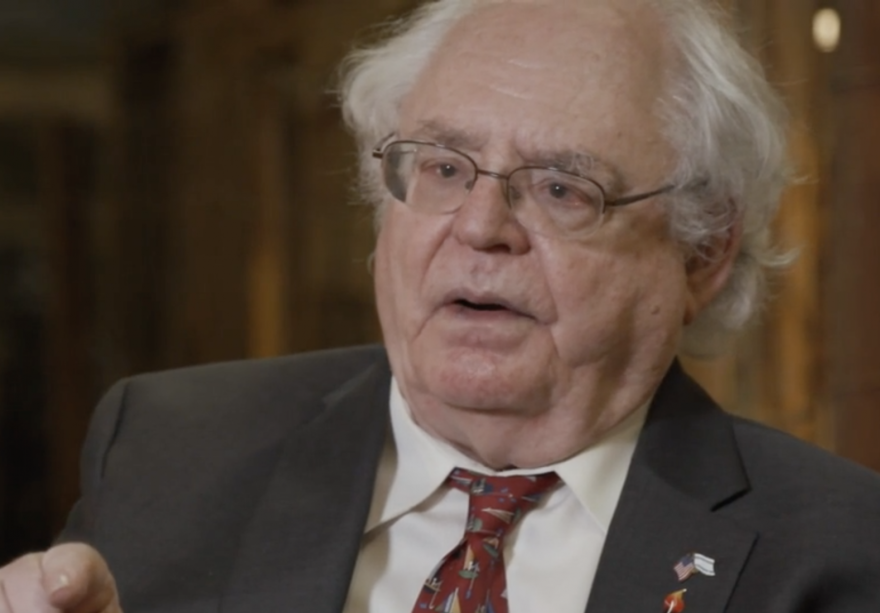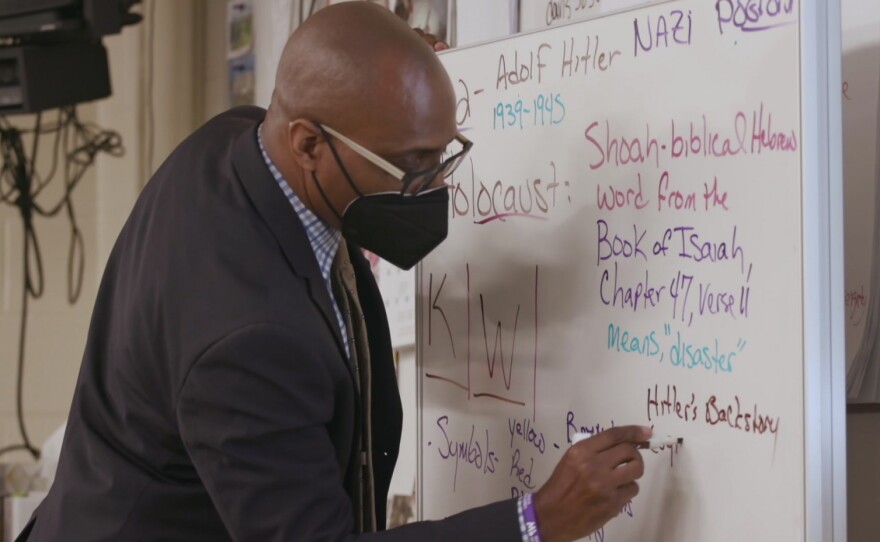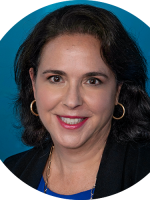Pam Hervey produced, directed and edited this story.
April 28 is Holocaust Remembrance Day, commemorating the six million Jewish victims of the Holocaust. Yet, despite the lessons of history, antisemitism is on the rise in Virginia and around the world. In 2021, according to a report by the Anti-Defamation League, antisemitic incidents in the U.S. increased by 34 percent compared to 2020. On his first day in office, Gov. Glenn Youngkin established a Commission to Combat Antisemitism in Virginia . Educators and legislators in Virginia are working to reach young people and adults with the lessons of the Holocaust.
Hashim Davis, a history teacher at Albermarle High School in Charlottesville, says the best way to fight antisemitism and racism is to bring the stories of Holocaust survivors and victims to his classroom. “What I love about being a history teacher, is that I can tell stories, but notably telling stories for those folks that we normally don't hear about,” Davis said.
In the classroom, Davis shows video testimonials from Holocaust survivors, archival footage, and documentary evidence of Nazi atrocities. He also gives students copies of identity cards of people sent to concentration camps “before,” he says, “the Nazis stripped them of their identity.”
Davis has always felt strongly that students should learn about the Holocaust, but with the recent rise in antisemitic attacks in Virginia, his teaching has taken on a greater sense of urgency. Virginia registered the 10th highest number of antisemitic incidents reported in the country for 2020, a total of 49 incidents, according to a report from the Anti-Defamation League; an additional 46 incidents were documented in 2021. Davis says when students learn about the Holocaust, they may feel compelled to speak up against all forms of racism.
The students in Davis’ class are part of a generation that often lacks awareness of the events surrounding the Holocaust. A 2020 national survey of 11,000 Americans (at least 200 from each state), by the Claims Conference found that 63% of respondents under the age of 41 did not know that six million Jews were killed in the Holocaust.
The high school where Davis teaches is only a few miles away from the epicenter of the Unite the Right rally in 2017, where hundreds of white supremacists and neo-Nazis marched with weapons and torches in Charlottesville and on the campus of the University of Virginia. The rally turned violent; more than a dozen people were injured, and a woman protesting the rally, Heather Heyer, was killed. In November of last year, a civil jury found white supremacists liable under state law for conspiring to organize the violence, holding them accountable for $26 million in damages.
The $26-million-dollar judgment is “something to be celebrated,” says Davis. He added that it shows that, “hatred is just not tolerated.” While that judgment can be seen as a step forward in a movement meant to stop the rise of antisemitism, a 2021 survey found that one in four American Jews said they've been a target of antisemitism in the last year. Davis says he believes his students can call it out when they see it, largely due to the time and effort he spends in classroom teaching about the Holocaust.
Davis teaches the importance of speaking out against injustice and prejudice and often quotes Eli Wiesel, a Holocaust survivor whose autobiography, “Night,” recounts his graphic memories as a teenager struggling to survive in the Auschwitz concentration camp. “Eli Wiesel says when you become a witness it is as a result of you bearing witness to it,” said Davis. Once they take his class, Davis says his students can never say that they did not know about the Holocaust. And he hopes they feel compelled to speak out against all forms of racism and prejudice.
Teaching the Holocaust is mandated by the Commonwealth of Virginia and students must be tested on the subject as a Standard of Learning. However, only 19 other states mandate Holocaust education for public school students. Jennifer Goss, a Holocaust education scholar, says that legislative mandates are a positive step forward, but that requirements differ vastly from state to state, “Mandates aren't a new conversation in Virginia.”
“The only official piece of legislation that discusses Holocaust education in its own standing is House bill 2409. That came about in 2009 mandating that the Virginia Department of Education ensure that every school district had access to a manual of effective practices and lessons for Holocaust education,” Goss says. “So, there's a measure of accountability in the state of Virginia that often lacks in other states that have ‘mandates,' but their mandates are very loose and simply say things like “the Holocaust must be taught.” Here in Virginia, we do have a specific framework that not only ensures that the topic is taught but that specific components of the topic are taught.”
Goss is most grateful for Holocaust survivors like Dr. Roger Loria, who are willing to tell their stories. Dr. Loria is a professor emeritus at VCU School of Medicine, and an internationally recognized expert in virology and immunology who lives in Richmond. Because of the ongoing trauma of recounting his experience during the Holocaust, he didn’t speak of his story for 50 years. As a child, Loria and his mother escaped Belgium and then fled to France after the Nazis invaded. They were caught and deported to a Nazi transit camp called Rivesaltes and escaped again. The Swiss police caught them and sent them to another refugee camp.

“I was three years of age when we went into camps,” recalls Dr. Loria. “I was in the yard playing with rocks and I saw a German car coming up the mountain. And that car pulled into the yard. And two German soldiers with a gun [got out of the car], and they walked straight up where the women were in the kitchen. And I stayed in front of the door. I did not go after them and waited there. And my mother saw them coming in. So, she jumped to the back table. And when the two German soldiers closed the front door, she went around the building, running, grabbed me, standing in front and into the woods. We made it. We were the only ones who escaped from that place. We saw later the trucks with the people going to the gas chambers.”
After the war, when Loria and his mother were repatriated back to Belgium, they learned that Loria’s father died in Auschwitz during a death march just a month before the end of the war.
Dr. Loria says he finally felt he had to tell his story two decades ago when he saw racial violence in Richmond, “When here in the U.S., in Richmond, I saw the burning of the churches and the killing of the Vietnamese and gay people. That is the first time I started talking, because I have been there. And I want to make sure that we do not repeat this, and that we don't let this happen again.” Once he started to tell his story, he made it his mission to talk to young people across Virginia and the country about his experiences during the Holocaust.
Dr. Loria also serves as a director of the Emek Shalom Holocaust Memorial Cemetery in Richmond, which memorializes the victims of the Holocaust. At the cemetery's annual Kristallnacht service on Nov. 7, 2021, Dr. Loria honored a Henrico County high school student named Abby Crowe for her essay about curbing antisemitism. He presented Crowe with the Esther J. Windmueller “Never Again” Scholarship for her writing. Crowe’s essay was about a personal conversation she had with Holocaust survivor Alice Ginsburg. The essay appeared in the Opinion pages of the Richmond Times-Dispatch.
Crowe addressed the crowd gathered that afternoon and said, "As I've gone on this exploration of the Holocaust, the one aspect that has stood out to me the most is how much love the Holocaust survivors have for the world. When you hear directly from the source, it definitely creates an emotional response that you don't get otherwise, and I'm hearing firsthand really is something that's going to go away eventually. And so, in order to keep telling the stories and keep them alive, it's important to hear exactly what happened and make sure it never happens again.”
Goss says Crowe’s experience interviewing a survivor is the most impactful way to teach young people about the Holocaust. “The reality is a lot of teachers in Virginia aren't today teaching students and drilling into students, names and dates and numbers,” she says. “They're teaching the Holocaust through stories and are teaching students the broader lessons of this topic.”
Goss says a 2020 survey by “Echoes and Reflections” found that teaching about the Holocaust helps students build empathy for people of many different racial, ethnic and religious backgrounds. She says, “Students that had been taught about the Holocaust were more likely to be tolerant towards others, and they were more likely to accept a diversity of viewpoints. I can't tell you that every one of those students could have told us that 6 million people, Jewish people died during the Holocaust and 5 million others. But what I can tell you definitively is that those students are equipped with skills that are going to help them go out and be productive and engaged citizens in our society.”
Virginia U.S. Representative Abigail Spanberger (D-7th) has been working on legislation to support Holocaust education. She co-sponsored the “ Never Again Education Act” that passed in 2020 and provides $10 million in funding to the Holocaust Memorial Museum to ensure better access to Holocaust education resources for schools around the country.
“It’s incredibly important that all of us remember where lies, conspiracies and hate can lead a society,” Spanberger said. “And so being active in ensuring that we're remembering that part of our shared history is incredibly important. I think it's a way that we honor the victims. It's a way that we proactively ensure we never, never witness something nearly as tragic or horrible ever again.”
That’s a sentiment that Dr. Loria strongly affirms. "It is very important to tell the story, to tell the history. We are now in a situation where hate is very prevalent, and certain people use hate to justify violence. We are talking against that. We are talking about hope, about helping people, about kindness and not about hate. Hate never solves anything.”






